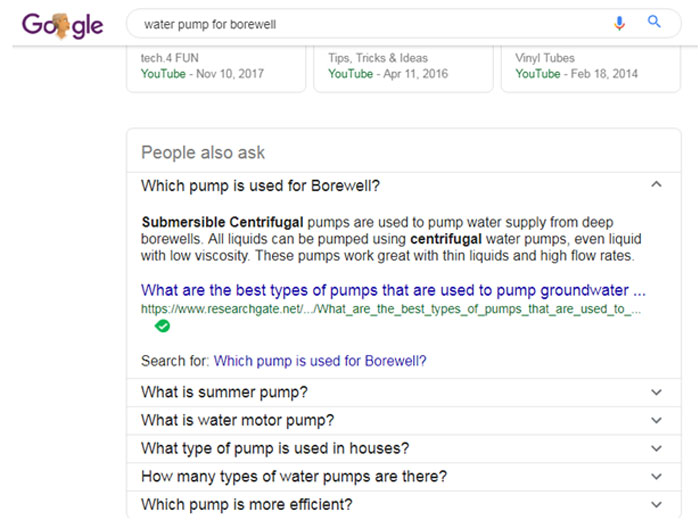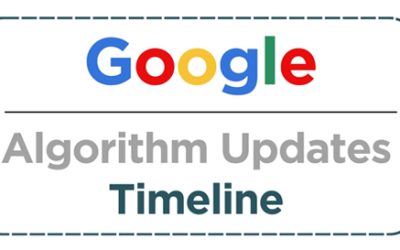Digital marketing is evolving, and that’s because the needs and expectations of the audience are evolving. And, there are the algorithmic updates Google keeps bringing in. We saw the frequency of Google’s algorithmic updates in 2018 and how some of them have not yet been confirmed by the search engine giant. It has however said that minor updates will always be introduced from time to time. We did see important mobile- and speed- based updates. Heading into 2019, there are some trends you can expect. That makes it easier to get your SEO strategy planned.
7 Key SEO Trends for 2019
- Strengthening Mobile Site Optimization
Mobile-first indexing makes mobile site optimization super-important. Google now uses your page’s mobile version to index and rank it. That’s a groundbreaking development, and Google has been migrating websites to the mobile-first index. Once your site has been migrated, its mobile version will be used for ranking. Ensure your website is mobile-friendly. The update doesn’t indicate that you can neglect your desktop website because there still is one index for both mobile and desktop site versions.
- Speed Metric Could Get More Important
We have already seen Google make page speed a ranking factor for mobile sites. It’s also been a ranking factor for desktop pages. But there are other things to consider here, particularly how Google evaluates page speed for desktop and mobile. A website is now evaluated on the basis of optimization and speed for desktop and mobile unlike the conventional practice where technical parameters were considered.
The Speed score is generated from the Chrome User Experience report. The report is a reflection of the loading experience your site gives to every visitor. But the metric just can’t get through the local tests you run because it’s not easy to measure the speed with which the device of each visitor loads your website. However, you can control the optimization score by identifying and rectifying the issues in your website that prevent it from loading fast.
SEO PowerSuite conducted an experiment to test mobile page speed, and this experiment revealed that there is a strong correlation between the Optimization score of a page and its SERP position. However, there isn’t any correlation between the Speed score and the position of a page. So, even if your site may be rated by Google as slow, it doesn’t impact your ratings. That could change, since Google is testing the Speed metric. As of now, the Optimization score is what matters, and that is something you can control.
- Brand Mentions Could Become More Crucial
The importance of your brand becoming a ranking signal is crucial. Google does use online brand mentions as part of its search algorithm. It does that by tracking brand mentions that aren’t necessarily linked. Through these mentions, Google gets to learn about the entity behind your brand. Google also analyzes all properties that mention your brand to get a better picture of the authority of your brand in its particular field.
Google then figures out the context of your brand mentions. It checks out the reputation, customer perception, agility in handling customer complaints or queries, advertising, etc. The sentiment and context around your brand matter a great deal, since Google figures out whether your brand projects a positive image or not. And that affects your site’s rankings.
The strategy for this would be to build link-less backlinks, since fast link building isn’t often something that can be done in a white-hat manner. And, also ensure that your reputation is maintained among customers. Keeping track of brand mentions online is essential, be it in forums or social networks. Ensure that you keep your happy clients engaged. If any of your customers have complaints, make sure you address them and tell them that as replies to forum posts or as comments or posts in social media. You may need to find influencers. These influencers can talk about your brand. In fact, there could be those who are already talking about your brand.
- Audience Expectations Could Evolve
In close connection with this point is the fact that you really need to understand the needs of your audience. What exactly does your target audience like to see when they search for related phrases or products online, or hang out in the social networks? Figure that out, and you’re already halfway towards attaining your goals. What is the kind of content your target audience prefers – video, images or more of text? This is crucial when you consider that the preferences and interests of your audience could change.
- Conversational Search, Voice Search and Smart Speakers
Make sure you have all the relevant content your target audience could possibly ask for, because comprehensiveness and relevance are important for Google. This is significant when the typical search philosophy of typing the keyword in the search box is changing, with conversational search terms used as well as searches carried out through smart speakers such as Google Home, Apple Home pod and Amazon Echo. According to estimates, 50% of all searches by 2020 would be solely voice searches. And these smart speakers would be used for at least 30% of searches. They wouldn’t need a screen at all.
For many of the informative searches, Google also pulls out what it thinks is the most relevant information in the form of commonly asked questions and answers, and puts them up in the SERPs so people don’t even need to check each SERP result.
Instead, they can possibly get the information they need on the SERP page itself. And they could end the search.

- Looking Beyond Just Attaining No. 1 in SERPs
People want to get the information they need, fast. And if they could do that without elaborate searching, you need to make the information available to them in that manner, even if that means looking beyond conventional search box querying. That means you also need to develop ways to drive traffic and engagement not just through your website. You would need to look beyond just getting your website up in the number 1 SERP rankings.
Ringier AG’s digital marketing head Jess Scholz recommends thinking in terms of getting your content more visible in the featured snippets. And, that includes improving the visibility in conversational interfaces. Content aggregators and hosted articles are some of the ways by which you can get greater reach for your content and brand among your target audience.
- Thinking Beyond Just Google Search
2019 could also be the year when you seriously think beyond just Google search. According to Eli Schwartz of SurveyMonkey, 2019 could be when the importance of SEO extends beyond just optimizing for Google to embrace optimizing for other search engines too.
If you’re into ecommerce, that means optimizing for Amazon’s search. We know this search is not something that searches the universal web as Google does, but it’s a massive tool for internal search and uses algorithm that is quite the same as Google’s. Remember, more people wanting to do shopping are heading straight to the Amazon site without searching for the stuff on Google. Search Engine Land quotes a study by Kenshoo which states that 56% of the consumers with shopping on their mind first visit Amazon. The study also mentions the amazing opportunities Amazon offers for ecommerce marketing and getting your product into the minds of potential customers. So, Amazon optimization is already super-important and it will only get even more important in 2019.
Let’s optimize your website for success in the digital era.
An experienced search engine optimization company would already have planned strategies for 2019. It is time to get started. On that note, here’s wishing you a happy and successful 2019!




